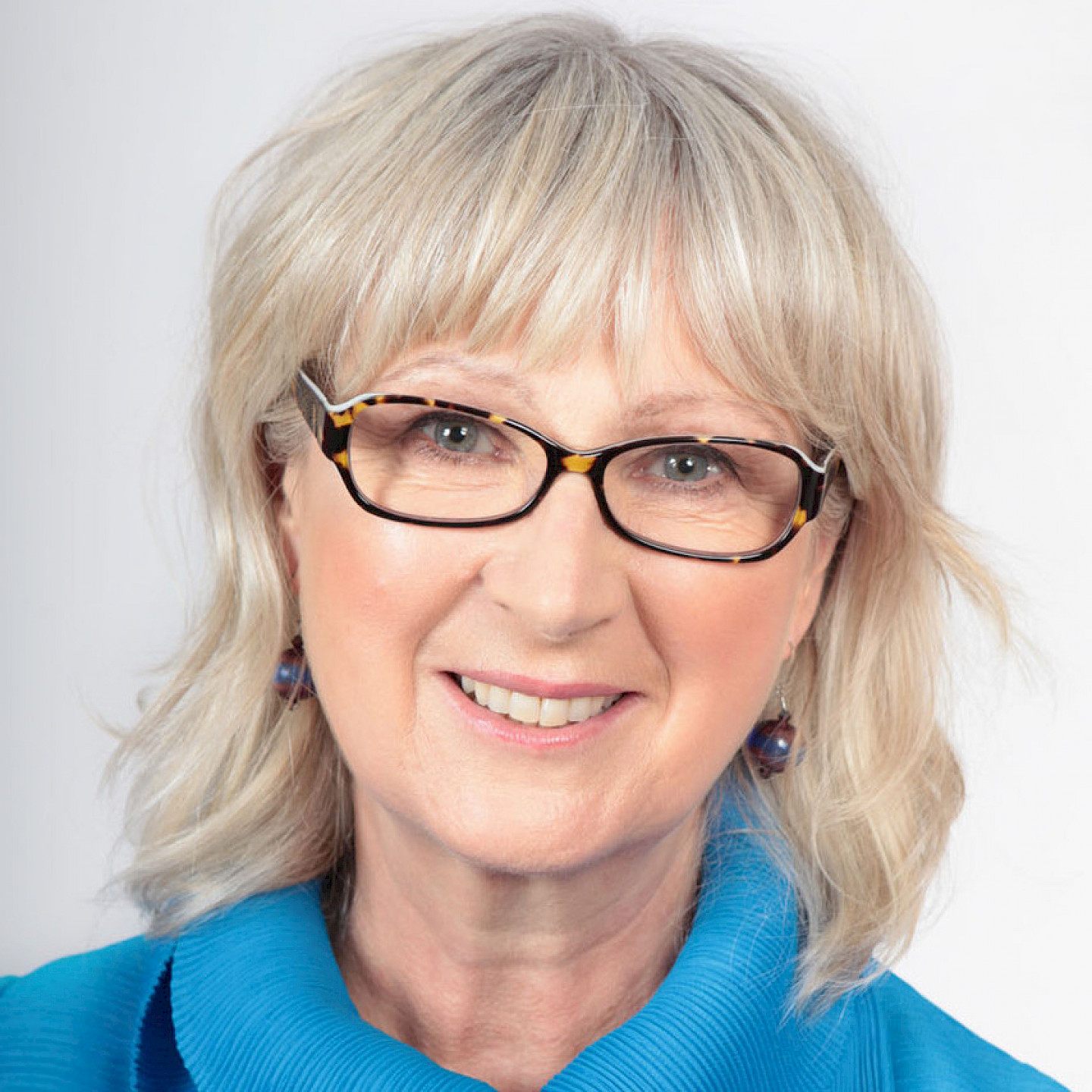The super-rich are London’s most troubling and secretive presence. Their lives are socially, politically and environmentally unsustainable, making them one of the most pressing problems of our time. Portraits of the wealthy in the popular media depict them as celebrities and truculent billionaires; when their excesses in the face of growing urban poverty are considered, these casual portraits only serve to obscure who they really are. Plutocrats have become a caricature of themselves: a new urban myth. How little we really know about them and the opaque worlds they inhabit beyond the tabloid and Tatler myths. Who are they? How do they think about themselves, about other people, about London? Where does their money come from? How do they spend it? How do they live with their money, and how does money live with them? Serious Money suggests that London is a living experiment in the co-existence of wealth and want.
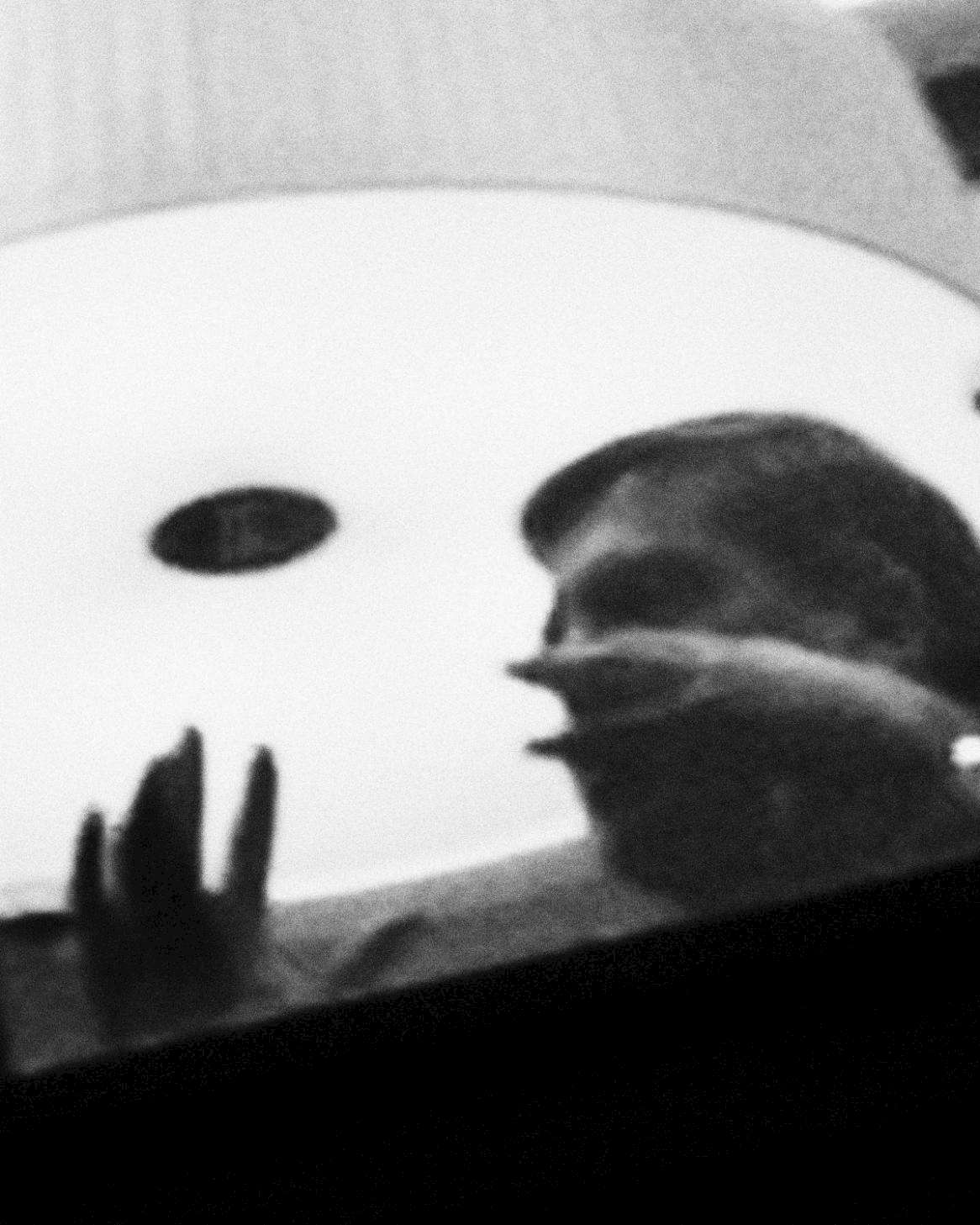
In London, money rises in the East and sets in the West, and Serious Money follows this arc. It starts with visits to the places where money is generated, around Shoreditch and the City, through financial institutions, property speculation, business and especially tech: together with inheritance, this is how serious money is acquired. It then calls in on the hidden money engines of private equity and hedge funds in Mayfair, Belgravia and St James’s: areas that simultaneously create vast wealth and offer opportunities for wild consumption. Continuing westwards through a vortex of wealth, it takes an intimate look at domestic life in Kensington, and then Chelsea, takes in the northern spur of Regent’s Park, and moves on to Richmond. Along the way I visit palaces, polo fields, private clubs, art galleries and auction houses, luxury shops and the capital’s most expensive residential streets. I examine the wealthy’s housing; their vacations and their clubbing and dining habits; how they graze on London’s vibrant arts scene; how a matrix of advisers guides their spending; how women fare in these habitats; and, especially, how mothers produce the next generation of plutocrats, by teaching their children how to be rich. Following the money finally takes me all the way to the city’s western border, and the sinister and silent streets of Virginia Water in suburban Surrey.
Cast of Characters
In Serious Money you will meet a wide and wickedly entertaining cast of millionaires, billionaires and those who serve them: bankers, algorithm-writers who expend money, aristocrats, tech tycoons, butlers, body-guards, divorce lawyers, art advisors and the folk who run Family Offices. You will meet the young rich set, who mooch around Chelsea, Russian entrepreneurs, and the wealthy women who run the most elaborate homes and rear the next generation of plutocrats.
Young Shoreditch entrepreneur and owner of Looking Glass
Maths geek who writes the algorithms that expand Money in the City.
High up in an international bank in the City dealing with many of the world’s billionaires.
Researcher in Mayfair who works for one of the world’s biggest hedge funds.
The billionaire hedge fund owner.
Former banker and private equities dealer specialising in FinTechs
Stands outside The Dorchester hotel.
Head of security at a famous five-star London hotel.
Works the night shift at a top London hotel.
Colombian woman who specializes in elite-guest relations at top London hotels.
Director of communications in a private investment group.
Russian investor whose hobby is producing sustainable caviar.
Former Mayfair gallery curator turned expert on art collections for the wealthy.
Young lawyer, who reports from the impenetrable 5 Hertford Street club.
Former private equity dealer from an elite colonial back- ground, resident of Mayfair.
Urbane urbanist who fronts for His Grace The Duke of Westminster.
Runs a Mayfair family office and his own property development company.
Works on the domestic and family services side in a family office.
The hippest judge and QC, expert in the international dimensions of family law.
Notting Hill mum and volunteer, who hails from the landed aristocracy.
Wife of a Notting Hill private equities dealer.
Notting Hill mum with two young daughters and a home renovation project.
Resident of Elgin Crescent in Notting Hill and mother of a son at Eton.
Nineties merchant-class squillionaire, who dropped out in Chelsea.
Elderly minor aristocrat living in an attic in Kensington
Former civil servant and neighbourhood activist in Kensington.
Opera’s husband, retired conservation architect and local Kensington historian.
Historian’s wife and friend of Opera Holland Park.
Russian journalist and chronicler of London’s invisible Russian entrepreneurs.
Banker
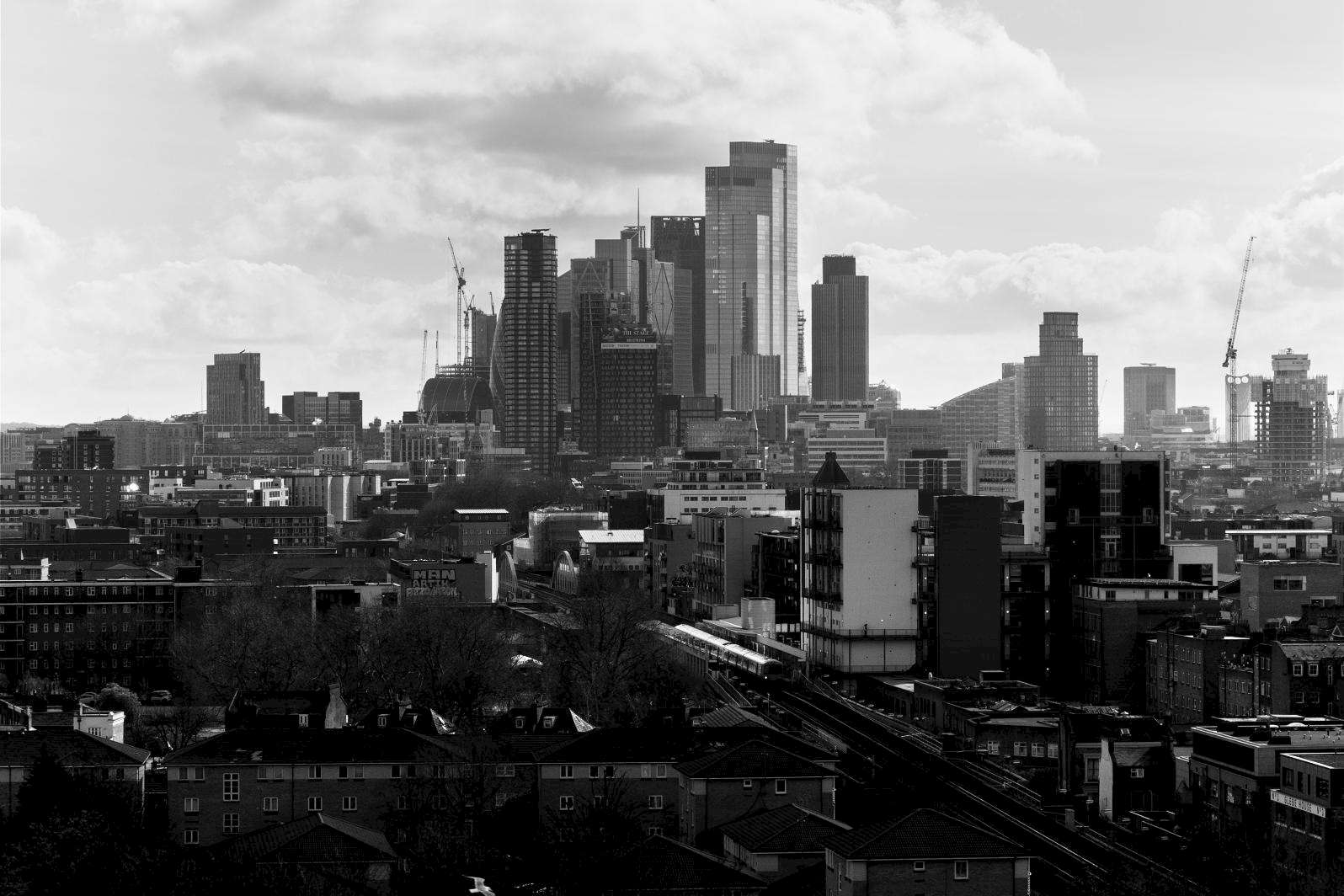
Banker is part of a global stock market trading and wealth management enterprise operating in fifty countries, managing the wealth of over half of the world’s billionaires. He tells me his work involves bespoke services: in assessing the needs of wealthy clients and advising on the expansion of their wealth through a spectrum of financial instruments, including investment and stock market trading, as well as estate planning and protection from taxation. This bank provides ‘pretty much every type of financial service that you can offer’ to large sections of the global plutocracy, providing the building blocks of the plutocratic city. Banker’s handsome salary is supplemented by bonuses and stock options that reflect his contribution to the bank’s profits skimmed from his deals. From the 1990s, there was a boom in profits that was reflected in giant hikes in the salaries and bonuses of top financial workers, putting some of them in the ranks of the super-rich. ‘I would say that most people who work in finance, are, to some extent, motivated by earning money, or they probably wouldn’t do it,’ Banker muses. ‘There are easier ways to earn a living, just in terms of the hours and in terms of the pressure. I think, that said, it is enjoyable.’ He feels fortunate that ‘banking does pay relatively well. I think most people are motivated, to some extent, by money and the status; there’s probably some element of what it affords someone, the nice lifestyle, the house, the holidays.’ Banker is a High Net Worth Individual. He lives in style on the northern, Primrose Hill side of Regent’s Park, one of London’s wealthiest neighbourhoods.

Physics
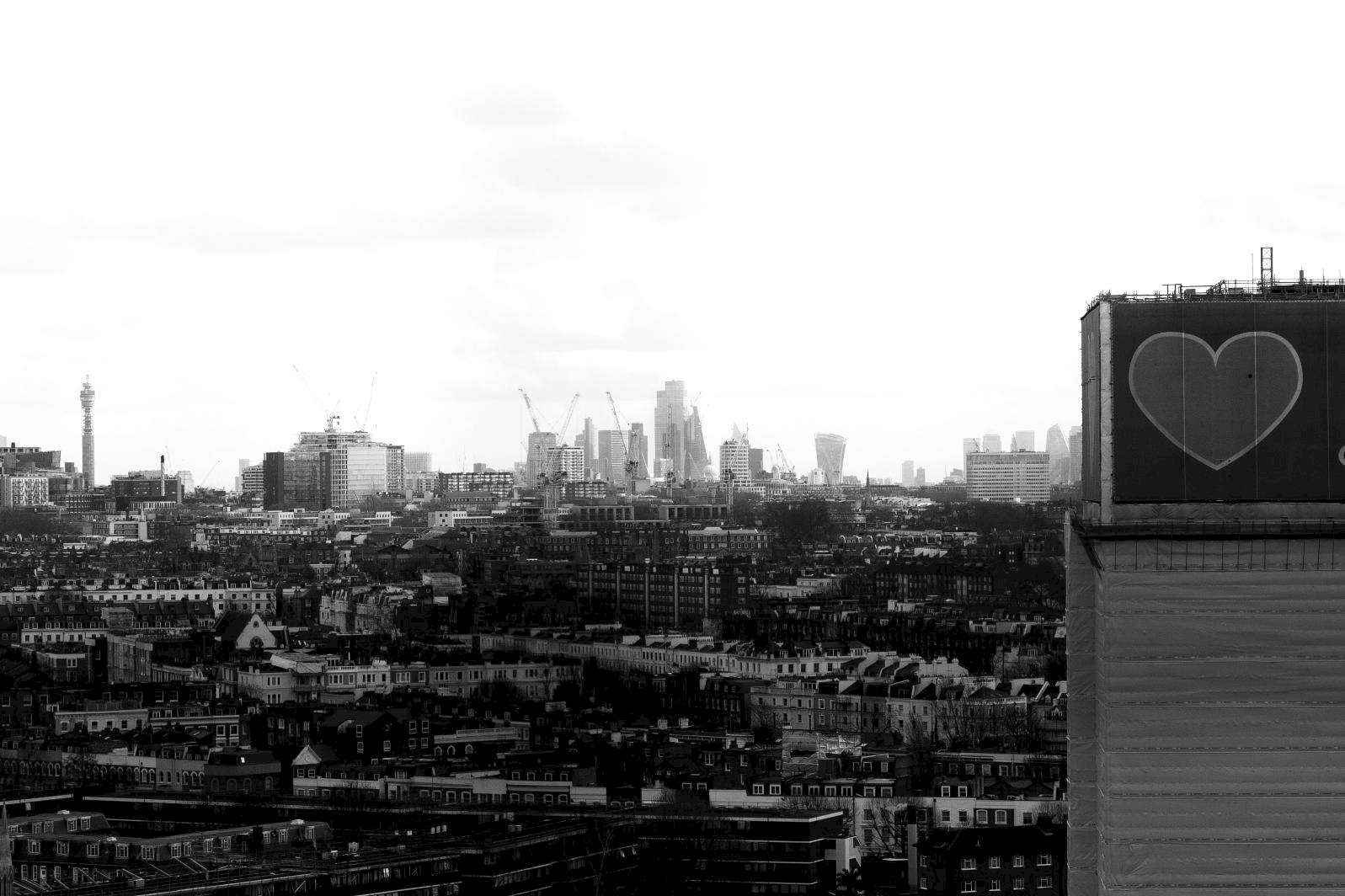
‘Because we’ve just bought this house, there’s a huge amount of work to do,’ she says. ‘We’ve got builders doing all sorts of things, and I have to coordinate all of that. Also, I try and work out what school my daughter is going to go to. My husband had quite a stressy year with his work so actually it works much better when I’m home and not stressed myself. I think if the two of us were stressed, it’d be worse than a disaster.’ Now she fills her days with ‘a yoga class or a Pilates class, I’ve started to learn to play bridge, I do all this interior design stuff, I pick up my daughter from school, organize her, and I’m around and available. And a bit bored. Also, I work with a charity around here, and I do lots of fundraising for them. So, I’m super busy. I’m always running around. But that’s how I like it.’
And then there is their life in their country to organise too.
‘So, our country life is very spoiling. We have a lovely house that we’ve just bought, and we go there for weekends and holidays and half terms.’ Their house has ‘a garden, so the kids can muck about. They’re really into their horses, so we have horses. Yes, it’s just a very nice antidote to London.’ Country life is closer to the life her husband – who owns a successful manufacturing company – is accustomed to. She describes his back- ground as ‘properly rural’ and rather ‘traditional’. His family don’t just muck about on horses: ‘They hunt every Saturday. We all hunt every Saturday.’ She says his family are accustomed to the most beautiful country houses, gardens and horses.
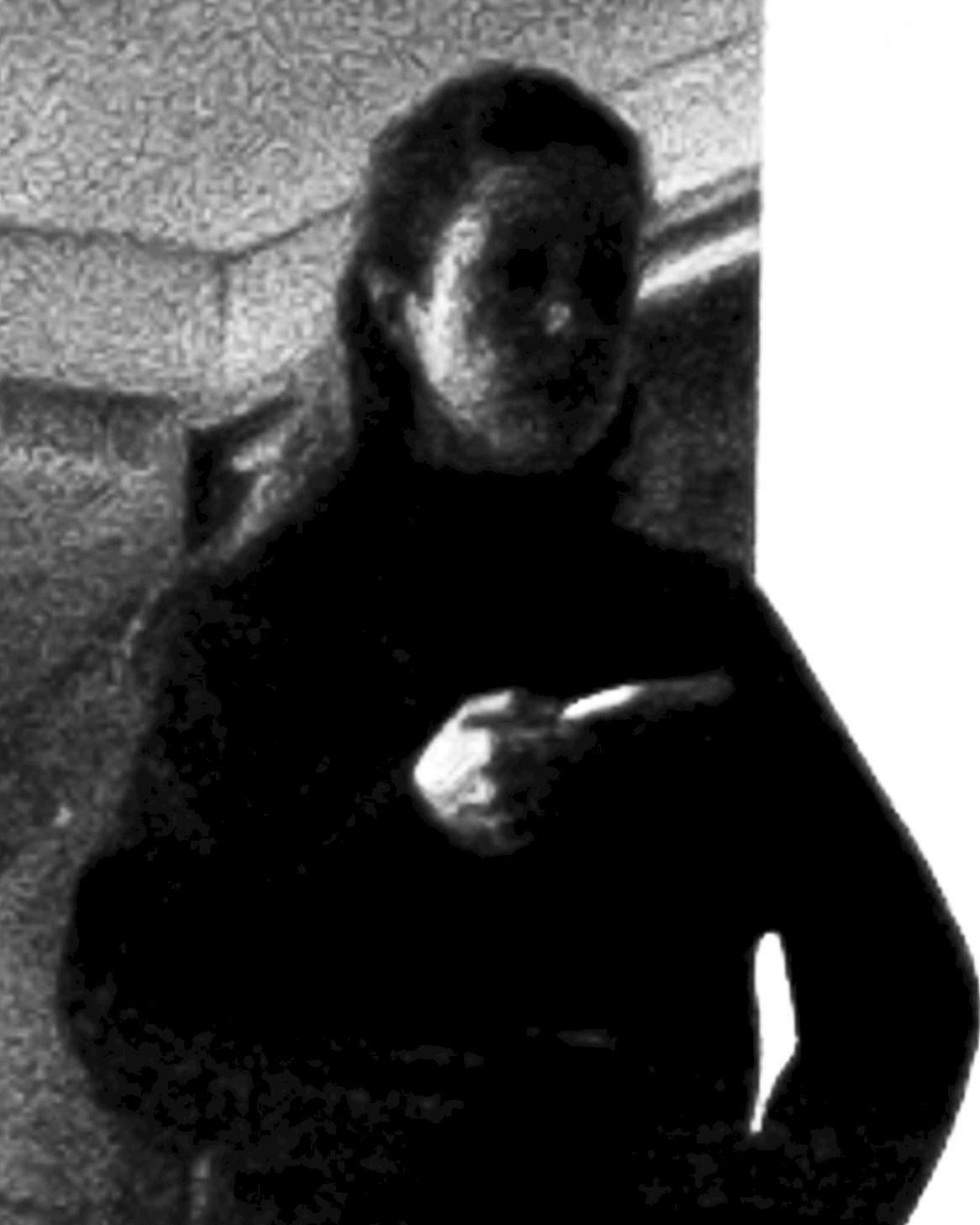
Bags and Barbour
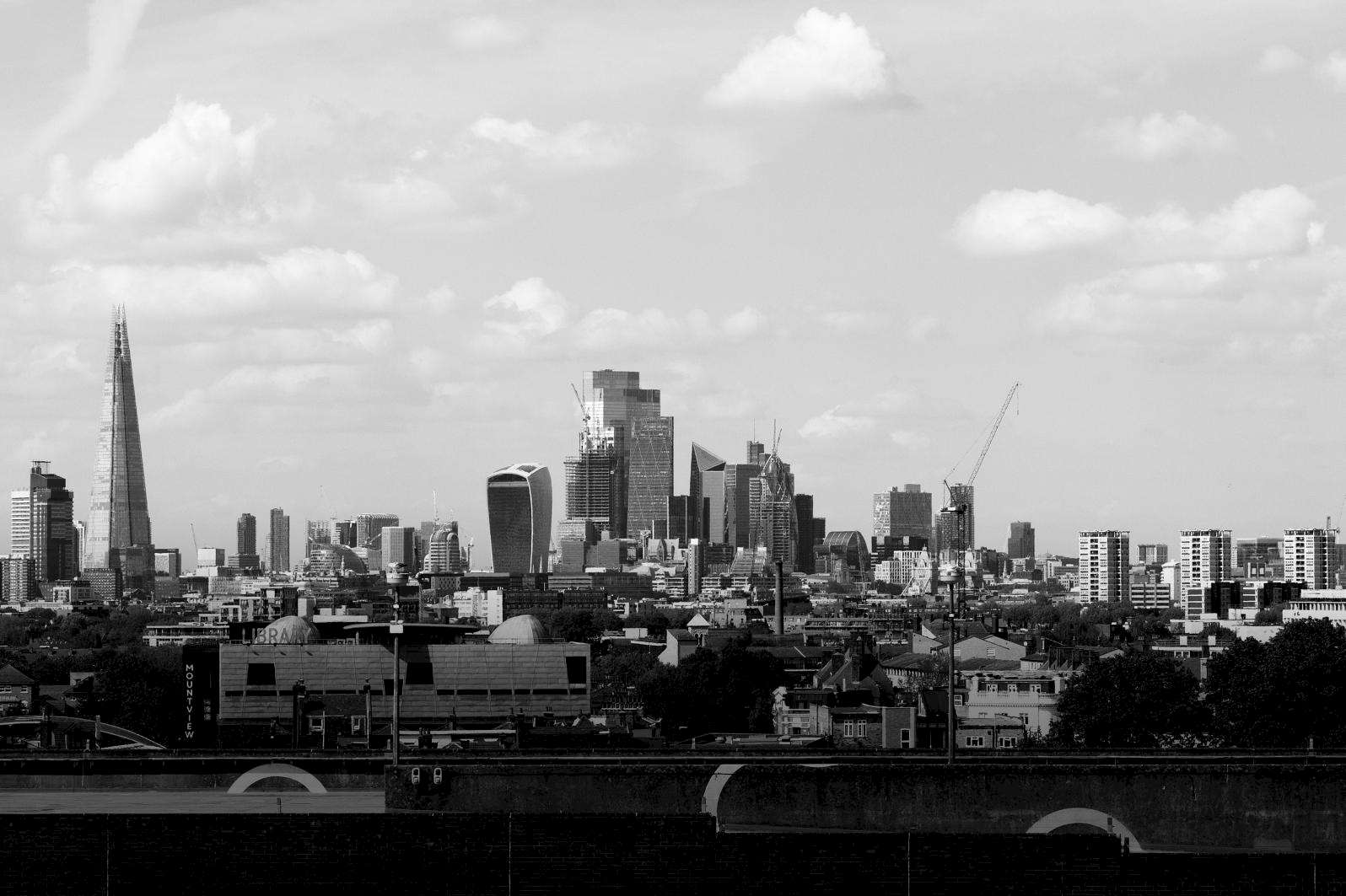
‘So, so sorry I’m late. I had to take one of my handbags to the shop.’ As she hugs me effusively, Bags explains breathlessly that trading in her bags for the latest models is a sensible, cost-effective way of staying bang up to date in the handbag department. Well-groomed and manicured, with long blonde hair, she is slender and beautiful. In her tight skinny jeans and a shaggy fur jacket, she looks like a celebrity. Her boyfriend, Barbour, is dressed in a country-boy-in-the-city look I am willing to believe is ironic. In his green, waxed, Barbour jacket with its brown corduroy collar, he looks as though he should have dogs and a gun. They are both 20 and Chelsea is their place. Their Chelsea begins no earlier than the afternoon. They go to sleep most nights at three or four in the morning, ‘even if we’re not out’, Bags says. ‘We go out for a drink maybe every night, or we’ll go for dinner . . . go for another drink, get back at 11 p.m., and then watch films and stuff.’ They wake up late, around one or two in the afternoon. ‘Then we go to lunch, go for a walk. We’ll both see our friends.’ Sometimes they drop into estate agents to talk property and the development (money-making) potential of local flats. But otherwise there is ‘nothing that’s productive’ in their days, because ‘Obviously, I don’t have a job,’ says Bags, and Barbour is ‘doing his own thing’. He is learning property development from his dad.

Purchase the Book
Years of footwork through the streets of central London have gone into producing this magnificent but disturbing book on the lives and influence of the super-rich. Knowles writes with enviable lightness and pace about how money, property, birth, breeding, contacts, secrecy, parasites and servants have created a class that owns and milks London, a world away from the city’s ordinary citizens. A powerful ethnography of plutocratic power.
Professor Ash Amin,
author of Seeing Like a City
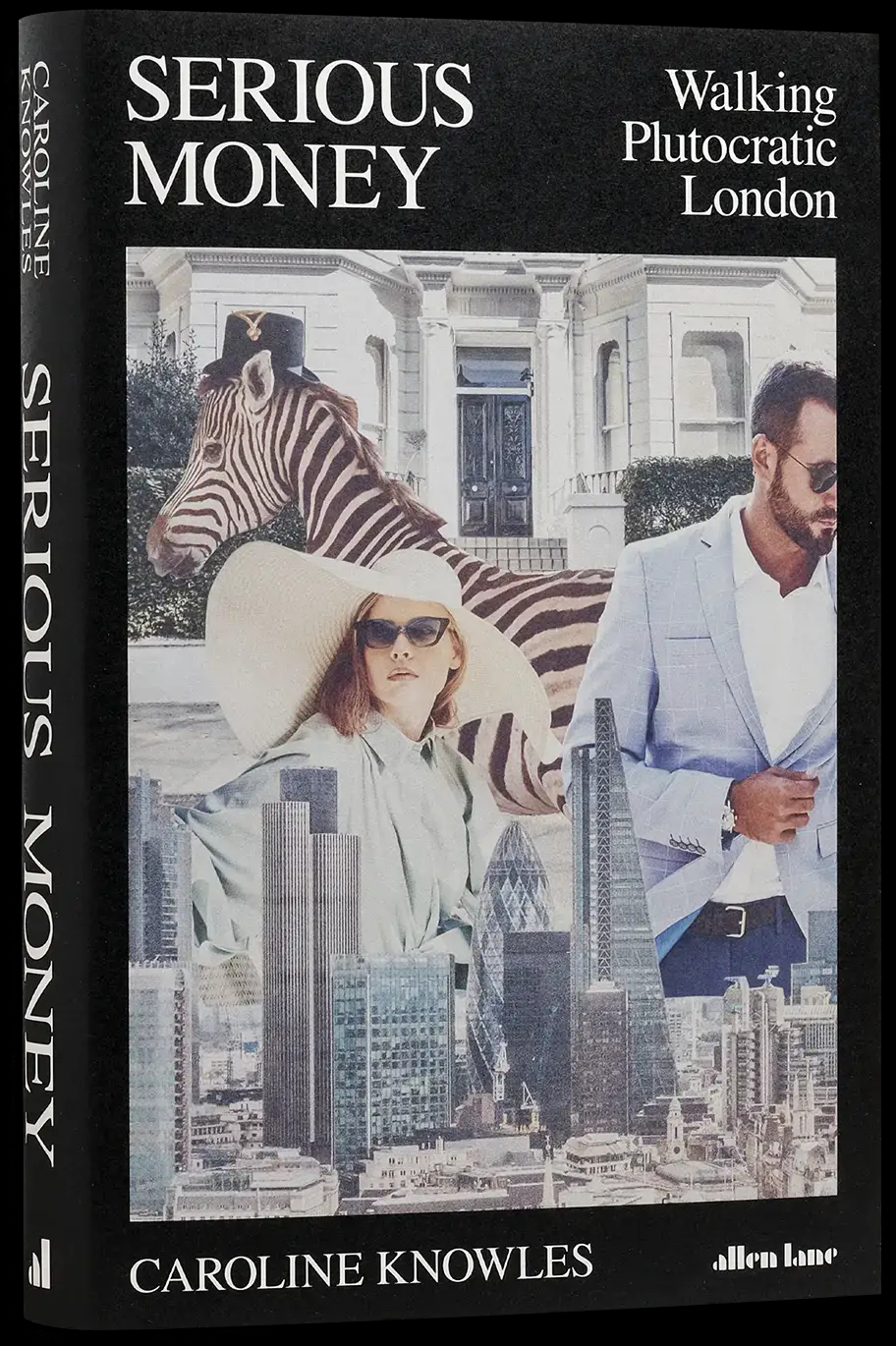
Fascinating, punchy, thought-provoking. Serious Money exposes the corrosive impact of London’s super rich on our economy, society and politics, and comprehensively busts the myth that their wealth trickles down to the rest of us.
Frances O’Grady
An eye-opening, deeply disturbing, fast-moving journey through the lives, homes and affairs of the filthy rich of London.
Danny Dorling
About the Author
Serious Money on Podcasts
London Struggles to Wean Itself From Russian Billions
Listen to David Merritt of Bloomberg's In the City podcast talk with Caroline Knowles about Serious Money, the City's super rich and how they're shaping London in their own image.
Caroline Knowles Walking Plutocratic London
with photographer Antonio Olmos
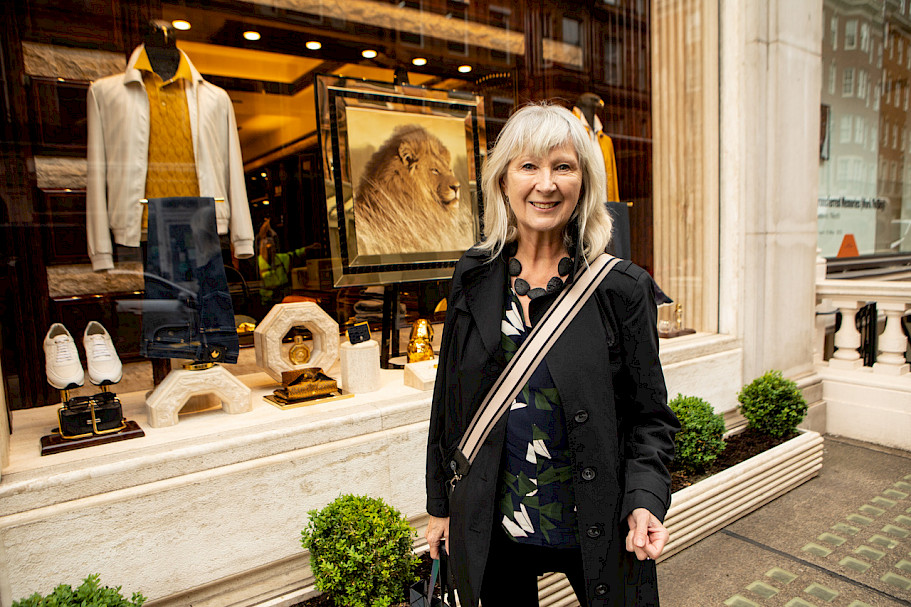
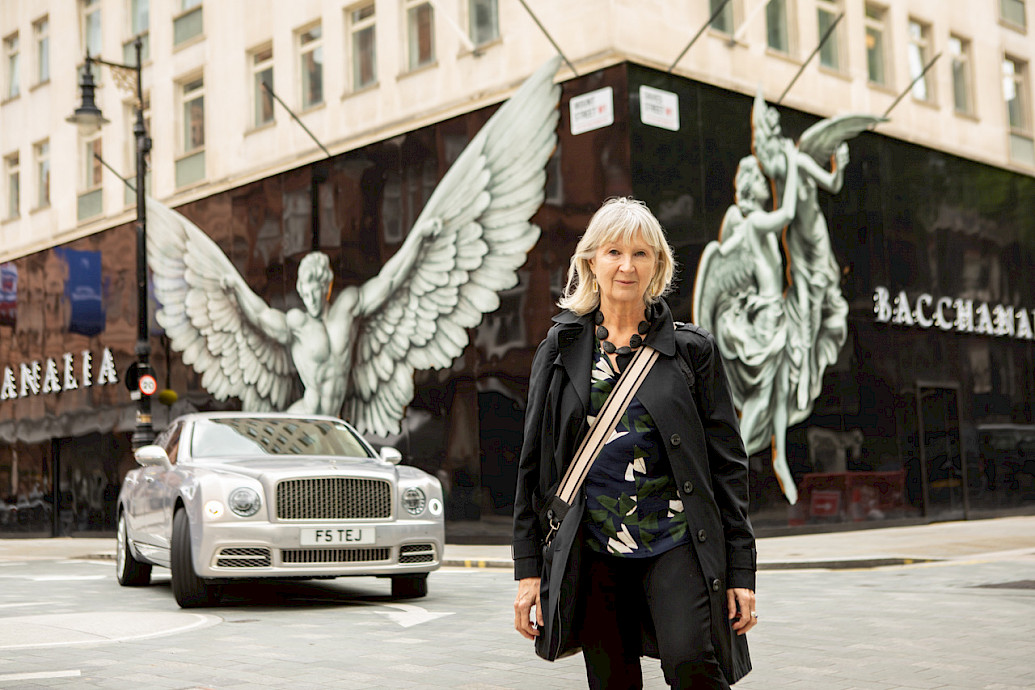
About the Photography
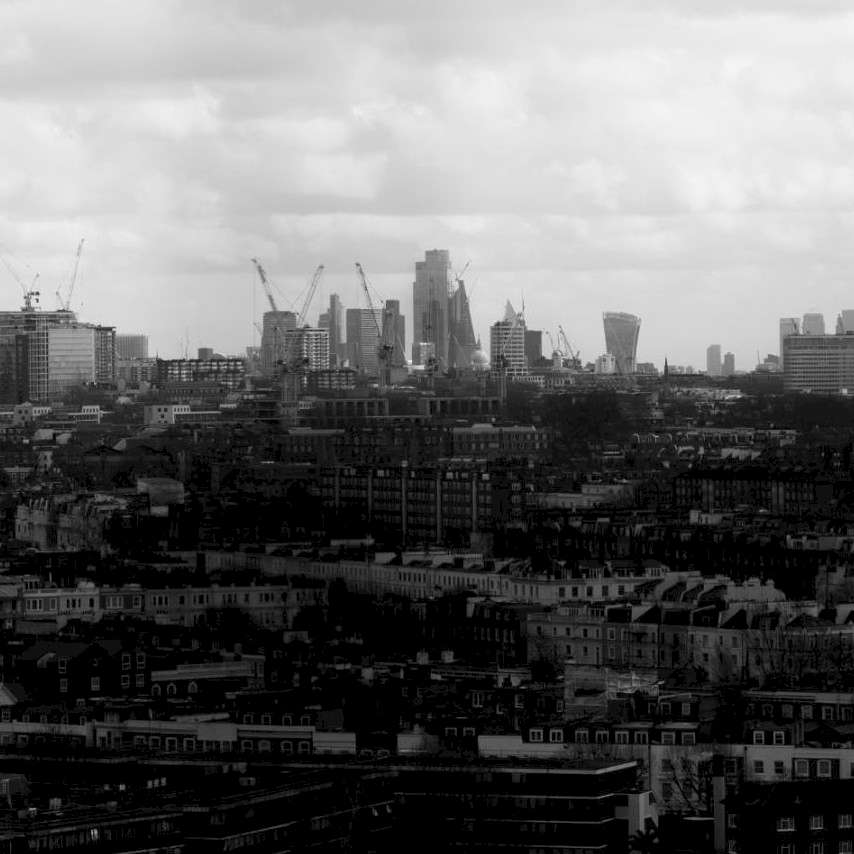
Derek Man’s photographs, taken in response to Serious Money, are both in dialogue with the book and speak beyond it. They are an invitation to viewers to think about the worlds of London’s plutocrats – the super-rich.
The cityscapes show London’s financial district around the Bank of England, capturing it from north, south, east and west. These images are taken from – or near to – social housing estates and show the views of most Londoners of its banking towers: always from a distance. As housing estates are ‘redeveloped’, tenants are frozen in residual housing options, often in poor condition, or shunted to the periphery of the city. Increasing numbers of Londoners are displaced and excluded as the city’s streets become places for the rich.
Man’s ghostly portraits, captured in Mayfair, suggest the invisible cogs in the money expanding machines of private equity and hedge funds. The images allude to the opaque nature of these operations, which are often hidden behind unmarked doors and buzzers.
Shot through windows from street level and then enlarged to a point of breaking, the spectre-like faces, with barely distinguishable features, suggest the unknowable and inaccessible world that they occupy.

